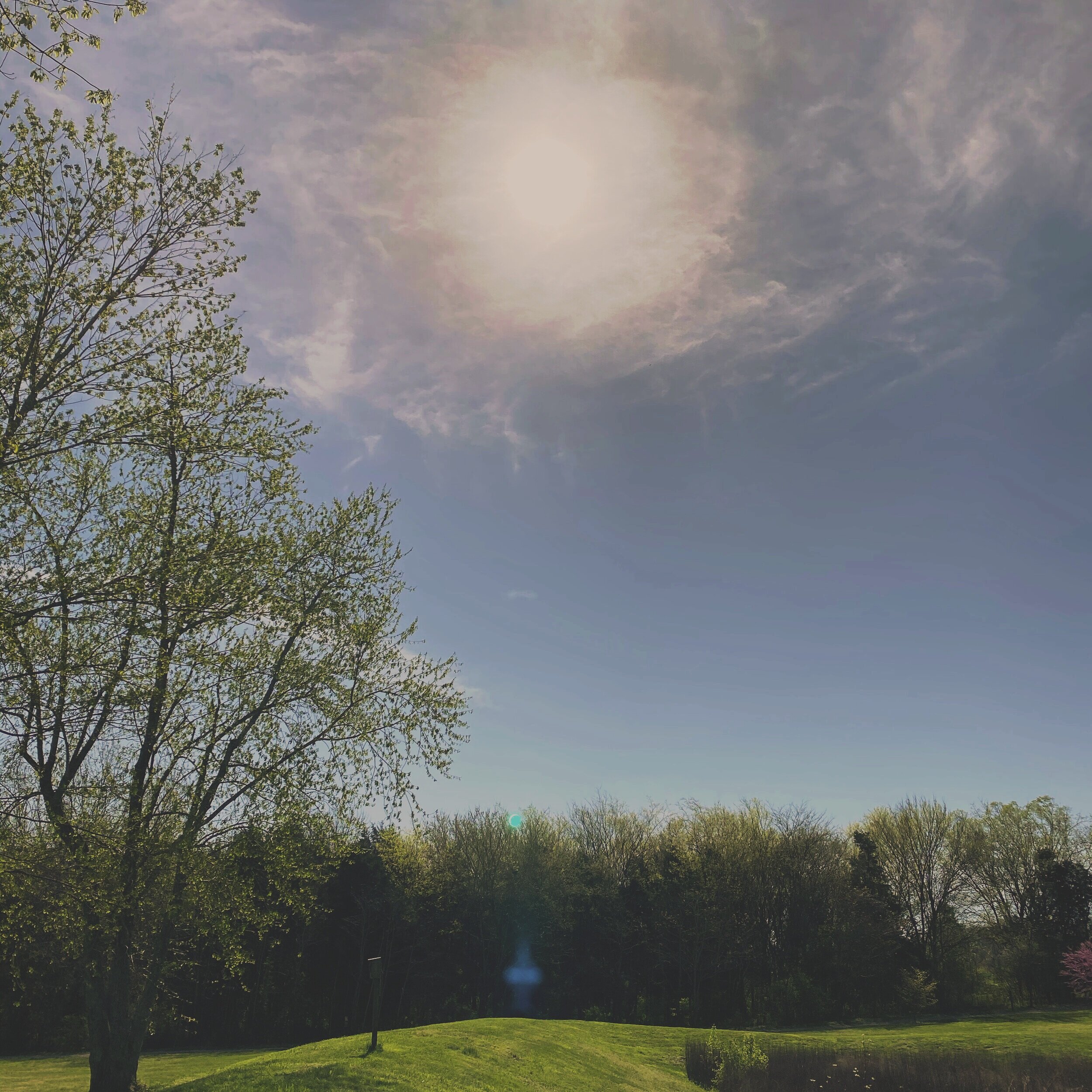Out of Dichotomy into Reconciliation
These days the Sheltons are making two pots of coffee.
We’re starting school a little later and eating a lot more carbs. The wildlife around the house has always been active, but it seems in an all out explosion over the last few weeks. It is a hard time; it is a good time. These are true in equal measure, and this is uncomfortable.
There are a million examples I could list showcasing our love of— and, dare I say need for— dichotomy. Dichotomy forms our boundaries and finds its life in highlighting the differences. But in the time of COVID-19, the dichotomies many of us have grown so accustomed to have suddenly narrowed, grown over, until the contrast seems lost completely and what we’re left holding is a forced version of reconciliation. Where dichotomy creates a division, reconciliation notices the difference and adjusts. No argument for or against. No calling it right or wrong. Just acknowledging, making peace and being.
And this is utterly crippling for a lot of us.
As I ponder our collective separateness and togetherness, I see that we find ourselves forced into reconciliation, into wrestling with incongruence on a moment-to-moment scale. Before when something wasn’t harmonious within our ethos, we could either tune it or remove it. Today we do not have that luxury, and it can be an assault to hear something that isn’t harmonious continue to ring out unapologetically. Yet, here we are, smack dab in the middle of reconciliation.
The Cambridge Dictionary defines “reconcile” this way:
to adjust the way you think about a fact or situation that is opposed to another fact or situation so that you can accept both.
So what happens when we find ourselves with a need to reconcile just about everything? Well… I think we’re finding out in real time.
It is all utterly exhausting, but I would argue it is more authentic and fulfilling (with time and patience) than what we consider “normal.” Our Western culture has gotten into the habit of polarizing nearly everything we can. If we’re honest, it is much easier to look at the world this way. Good/bad, off/on, black/white, blue/red, etc. etc. In this construct we can come face to face with an idea (or pretty much anything), make a snap judgment about it, and then tune it to fit our grid (this is how many of us probably understand “reconcile,” but it’s not accurate) or remove it. A perfect example of this is when our favorite Facebook Warrior says something divisive or disagreeable to another Facebook Warrior, and the offended Facebook Warrior responds with something like, “Well, if you don’t like it, you can just move to fill in the blank.” Make a judgment. Tune it. Remove it. But in actual life— in life right now during quarantine— how does this construct actually serve us?
As someone who identifies very much with Enneagram Five energy, I am comfortable in nuance. I prefer the gray areas because that’s where I find understanding. I don’t have to agree. I don’t have to know everything. I mostly just want to gain clarity. And still, even as comfortable as I am with gray, this season has been excruciatingly painful at times. The only thing I can think is that living in full reconciliation feels a little like grief. It feels like the death of myself, over and over again, the death of soapboxes and stanchions. There is deep sorrow (and deep freedom) in being forced to hold things that are disparate together for so long that we must make peace. We’re all holding so many things that feel incongruous and yet, here they are, together, real and true all at once.
Some of this is really bad.
Some of this is really good.
The economy is hurting because we’re not working.
People are being saved because we’re not working.
We’re isolated.
We’re unified.
We are holding tension in our necks, our heads, our hearts, our minds, and our souls… and there is no guarantee when it will ease or a step-by-step guide for getting to the other side of it because, truly, we don’t even know what the other side is, much less how to get there.
But here’s the thing: we are incongruous in and of ourselves. We are walking contradictions on a planet suspended in an ordered AND chaotic universe, just little mirrors of the bigger picture. Nothing has changed in the grand scheme of things; we have only slowed down enough to see it all, and to make space to reconcile.
There’s a lot for which I won’t find clarity, not during quarantine, not ever. And perhaps this realization is the most crucial realization of my life. I am not meant to harness power and absolute control, to wield judgment like a weapon, to order my ethos so that everything is tuned just so. Perhaps I don’t have to create a division. Perhaps I can simply acknowledge a difference and then make peace.
Interestingly, during this week leading to Easter, I find no greater example of a human embracing contradiction, disparity and reconciliation than the person of Jesus. In Richard Rohr’s The Universal Christ, he writes about this perfect dissonance:
The cross is not just a singular event. It’s a statement from God that reality has a cruciform pattern. Jesus was killed in a collision of cross-purposes, conflicting interests, and half-truths, caught between the demands of an empire and the religious establishment of his day. The cross was the price Jesus paid for living in a “mixed” world, which is both human and divine, simultaneously broken and utterly whole. He hung between a good thief and a bad thief, between heaven and earth, inside of both humanity and divinity, a male body with a feminine soul, utterly whole and yet utterly disfigured—holding together all the primary opposites (see Colossians 1:15-20).
In so doing, Jesus demonstrated that Reality is not meaningless and absurd just because it isn’t perfectly logical, fair, or consistent. Reality, we know, is always filled with contradictions, what St. Bonaventure and others called the “coincidence of opposites.” This is what we all resist and oppose much of our life.” (Read more here)
Today we sit in a “coincidence of opposites.” May we resist the urge to resist and instead hold space to reconcile; to be reconciled to ourselves; to each other; with the world; with the state of things; and with a meaningful reality that is uncertain and steadfast at the same time.

